
This March we partner with Micrology coffee roasters.
We are chuffed to bring you a filter coffee that has arrived at our mugs after traversing the ‘Death road’ from the Bolivian mountains to La Paz and a signature espresso that has a special place in many Perth café’s and coffee snob’s hearts.
We have loved Micrology’s coffee ever since we tried the Blue Note Blend at Perth café Ello in Northbridge, Perth. Owner and head roaster Daniel started in the coffee industry as as a dishie at a cafe during high school.
“I made terrible coffee with very little skill level but I enjoyed receiving positive feedback from loyal customers and loved the energy of hospitality. Years later during some long term travel I spent the best part of a year travelling between central and South America. During this time I got to spend time with coffee farmers of various sizes. This made me appreciate coffee on a whole different level and realised the potential importance of a coffee roaster/supplier in somewhere like Perth. Plus it’s really nice to work with a product that we not only enjoy consuming but get excited to share with others.”
Daniel leaves no stone unturned in his search for the perfect coffee. With over 10 years experience in the coffee industry Micrology seek to support farmers and form lasting relationships to roast high quality coffee all year round.
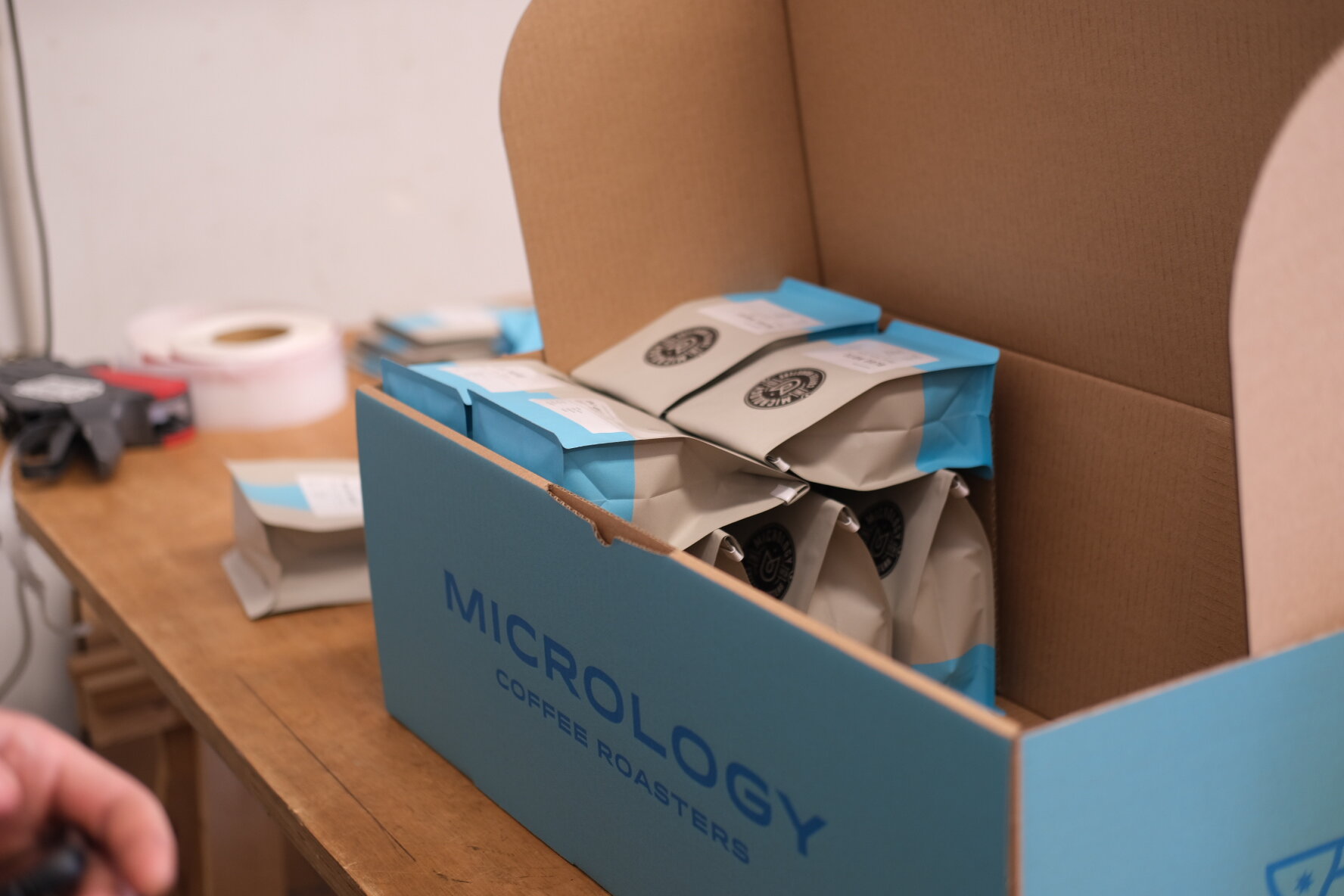
Micrology’s approach to sourcing coffee and chasing elusive origins make them a stand out roaster in the Perth and probably soon the Australian coffee scenes too. An example of this is our featured Filter coffee for this month from Bolivia.
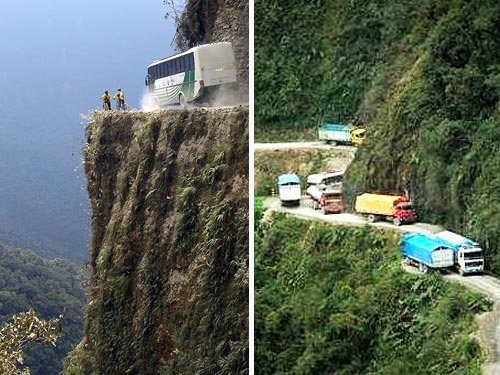
Bolivia’s Death Road is recognised as one of the most dangerous roads on Earth.
Not the easiest or most economical coffee to get your hands on, this coffee has traveled on some of the most dangerous roads on earth and it has been farmed in very remote areas with unique conditions perfect for coffee to grow. Unfortunately these remote areas also attract the attention of drug cartels. In the 1980s and 1990s the Colombian Medellín Cartel held considerable power in Bolivia and farmers in remote regions had little ability to fight back. After the US led drug war, the drug trade has subsided but some areas are still at risk.
It souldn’t go unnoticed that this coffee has been produced by people that have resisted the temptation to grow something “illegal” in order to produce an outstanding coffee for us.
This is a prime example of how the coffee industry can be used to help people in struggling communities improve their lives. Rather than take advantage as some of the big coffee players have done in the past, we will continue to seek out quality coffee and pay a fair price for it.
From Micrology: “We hope to promote and develop an increasing market for the highest levels of coffee quality in Perth ensuring our wholesale partners and their local coffee consumers can support a sustainable future of specialty coffee production. We aim to be a responsible participant in the coffee supply chain by working year after year with the same farmers whereby a purchase price is based on their unique quality and cost of their production rather than a commodity “C” price plus a speciality differential (which is how most speciality coffee is typically traded). Unlike most business models we hope that in the future we can continue to increase what we pay to our suppliers. This starts by generating a demand locally to consume higher quality coffee.”
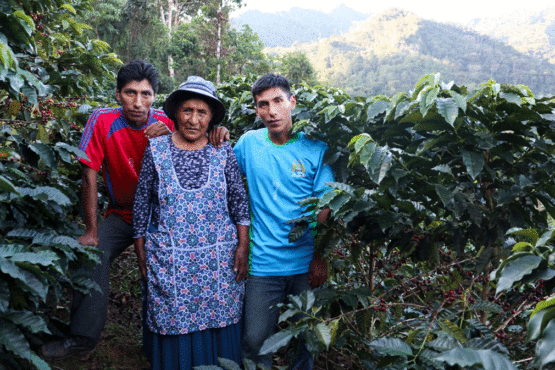
Carmela Aduviri from Bolivia with her two sons has withstood poverty and pressure from cartels to produce an outstanding filter for us this month.
Featured roasts
Espresso - Blue Note Blend
Tasting notes - Chocolate, orange, praline, buttery
Origin - Lama Preta – Brazil, Borralha – Brazil, Amigos Del Huila – Colombia
Varietal - Red Catuai
MASL - 1100 - 1750
Process - Brazil’s - Natural, Colombia - washed
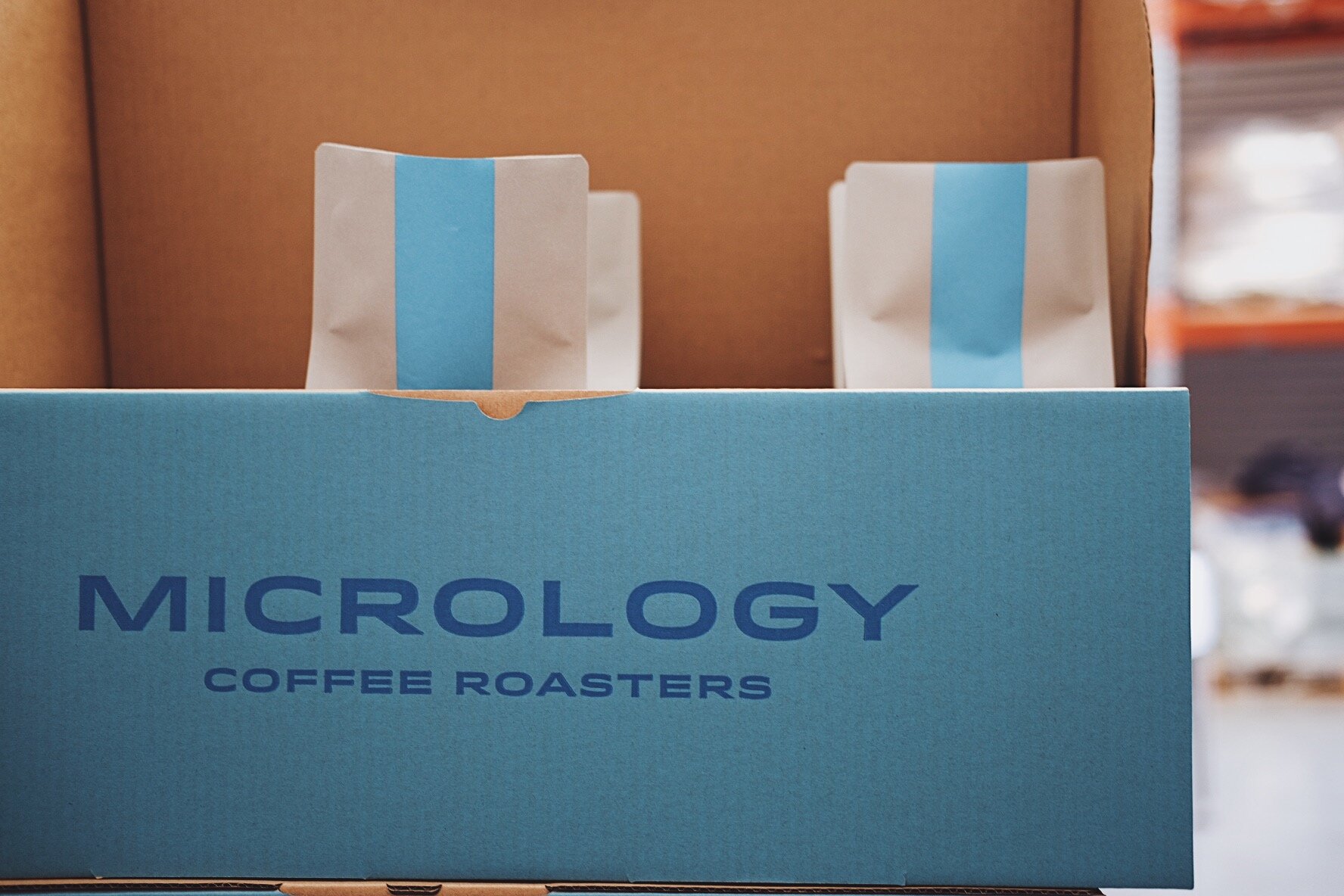
The famous, Blue Note Blend
The Blue Note blend is our most popular espresso based blend designed to typically be consumed with milk. It is a fairly classic blend profile that offers nicely developed sweetness and mouthfeel whilst retaining a clean balance of acidity and some syrupy fruit notes of orange, plum and date. The dominant component of this seasonal blend is currently made up from two coffees from the same producer in Minas Gerias in Brazil. The Lama Preta, pulped natural Red Catuai and the Borralha Natural processed Red Catuai.
The farms are part of the Ecoagricola company owned by brothers Marcelo and Roberto Flanzer. The farm is located within a natural forest reserve, that has crystal clean water streams, abundant wildlife and a beautiful waterfall known as “Lama Preta” which one of these lots has been named after. Of their 1,700 hectare estate just over 300 hectares is dedicated to coffee farming and over 860 hectares remains as natural reserve. The concept of Ecoagricola is for their agricultural production to generate funding for ecological preservation. The farms have established an initiative with the Professor Flavio Borem from the University of Lavras who is one of the world’s leading coffee quality researchers to refine its post harvesting practices. Each lot has been defined by plot, variety and processing method with 100% traceability maintained throughout the process.
After being picked, the coffee is sorted to remove any under ripe or damaged cherries and then pulped and dried carefully for over 7 days on extensive patios whilst being regularly turned for even drying. The coffee is then rested for 60 days before milled at their own dry mill. The family also maintains 2,000 hectares of land known as the Reserve da Borralha (which the other component of this blend is named after). This is an untouched natural habitat rich with biodiversity and home to a variety of native birds and rare Concolour Pumas. The estate runs a program with the nearby State Park hosting sustrainable education programs where they also cultivate seeds to grow seedlings, which are donated to the national parks and nearby councils.
Filter - Carmelita Bolivia
Tasting notes - Pineapple, tamarind, boozy, syrupy sweet
Origin - Caranavi Bolivia
Varietal - Caturra & Catuai
MASL - 1500 - 1670
Process - Coco Natural
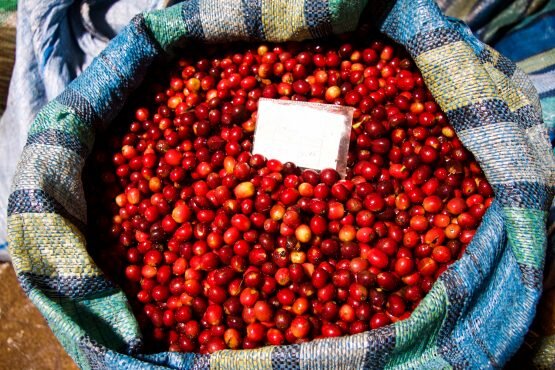
All the way from Bolivia, this microlot was produced by Carmela Aduviri in a remote settlement in the Caranavi province which is the primary region for speciality coffee production in Bolivia.
With incredibly high altitudes, rich soil and wide ranging temperatures farms in this region are typically small with all work done by the farm owners and a few relatives with all belonging to the indigenous Aymara people. Carmela has worked in coffee for over 40 years whilst raising her seven children. She now manages the farm with her son Elvis. After selectively picking their top-grade coffee cherries they are taken to be processed in partnership with Agricafe at the Buena Vista wet mill.
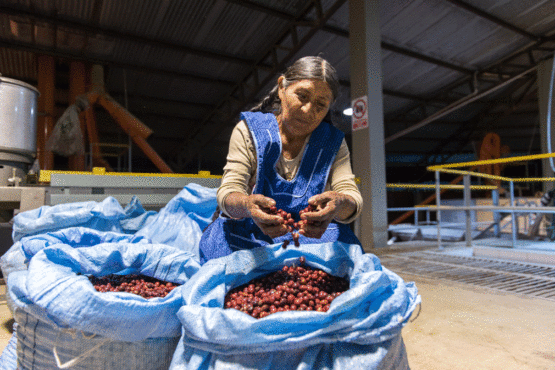
Carmela Aduviri carefully Inspecting her coffee cherries before they are sent to La Paz to be processed.
Production of coffee across Bolivia has unfortunately decreased substantially with a risk of it completely disappearing due to a combination of ageing coffee plantations, the effect of leaf rust and the proliferation of the competing coca industry used to produce cocaine. To try to save the future of coffee production across Bolivia, Agricafe aims to build the market for Bolivian specialty coffee by providing producer training programs and building advanced wet and dry mills. They have also started a project called Sol de la Manana (translates as “morning sun”) which shared knowledge and technical assistance to local coffee producers to help them with efficient and modern farming practices. Through the program Carmela has built a vibrant coffee nursery to prune, feed and manage her coffee plantation in order to increase yield. Prior to participating in the program five years ago she was making around $1000 a year from coffee and was forced to illegally grow coca to support her income. Now she is able to make over $20,000 per year just from coffee production. Carmela and her family carefully selected each cherry for this microlot and hand polished each one before delivering them to the wet mill. After the coffee cherries are carefully inspected at the Buena Vista wet mill, they are washed and laid out to dry on raised beds and turned every hour. After about one week they are placed in a special Coco dryer to help try the coffee slowly and consistently. The coffee is stored in large steel vats for around 35 hours at below 40C and turned every 30 minutes. Once dry they are transported to La Paz for further resting and then milled at Agricafe where they are hulled and sorted using machinery and by hand under UV and natural light.

Thanks to Daniel and Micrology for partnering with us this month.
Both of this month’s featured roasts are still available from our gift subscription page.
Happy brewing, CS

